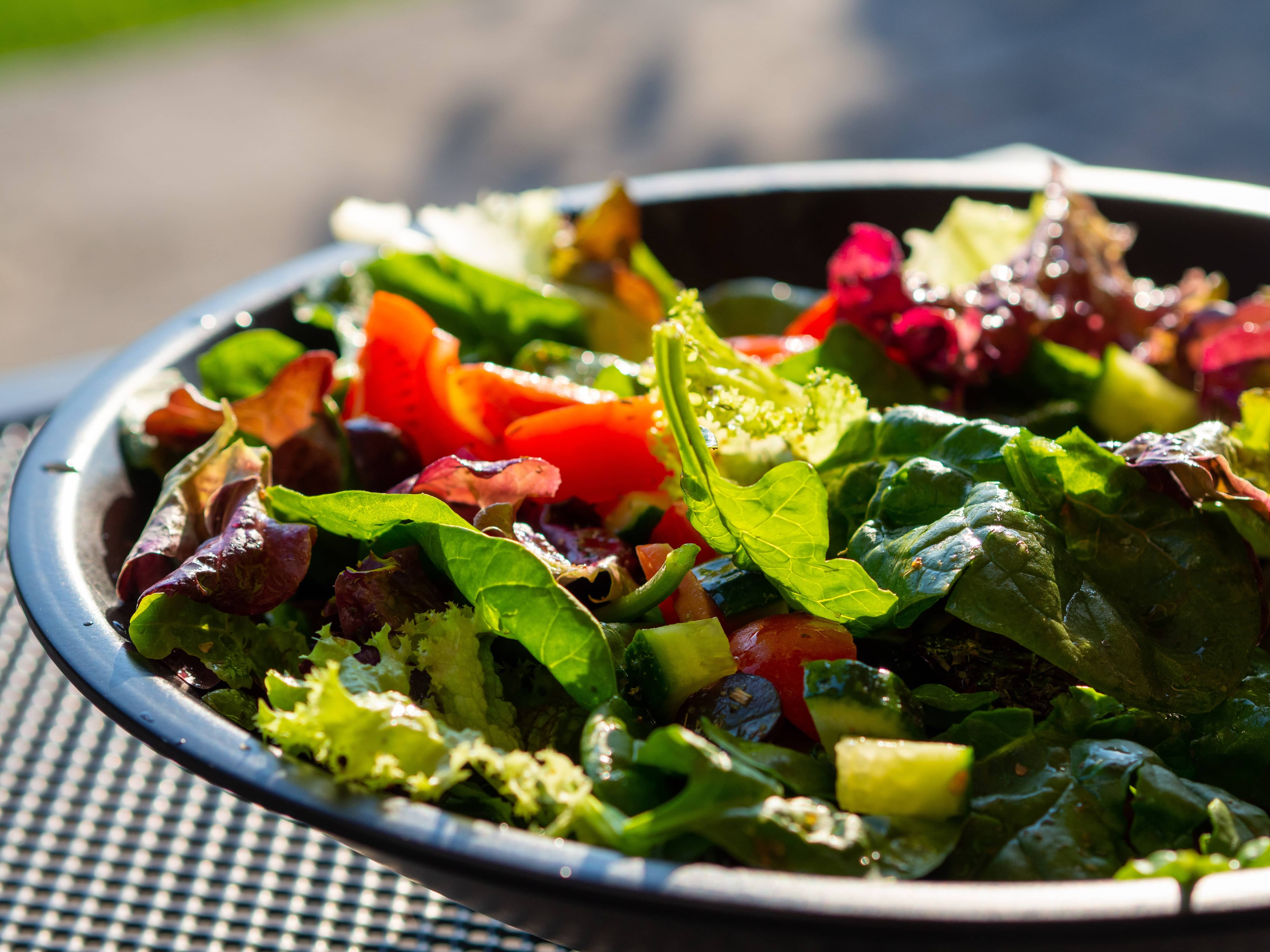Make a Salad for Dinner Tonight
TEXARKANA, Ark. –
There is something about cleaning a head of lettuce for a salad. It allows your mind to wander and your daily stress and worries to melt away as you wash and tear each leaf into bite size pieces. Or if you are in a hurry and don’t need the stress relief, bagged salad greens are available.
The introduction of bagged salad greens has led to an increased consumption of leaf and Romaine lettuce. In fact, according to data from the U.S. Department of Agriculture, it has more than tripled. This is a good thing, considering that eighty percent of Americans don't currently eat the recommended servings of vegetables daily.
Bagged salad greens should be washed before using. Especially if you are uncertain as to how they were cleaned. Don’t always assume that just because it is prepackaged that it is ready to eat.
When it comes to washing your vegetables, simply rinse them under running tap water. Put loose lettuce leaves into a salad spinner basket and give it a whirl. If you do not have a salad spinner, wash your leafy greens well with cold water between all the leaves. Turn it upside down to drain any excess water and wrap in a paper towel to dry.
When making a salad for you and your family, make food safety a priority. As you prepare a salad for your family, follow these steps to reduce your risk of food-borne illness from fresh produce.
- At the store, purchase produce that is not bruised or damaged. Bruised or damaged produce is bacteria’s friend. If buying fresh cut produce, be sure it is refrigerated or surrounded by ice.
- Once home, put produce that needs refrigeration away promptly. Fresh whole produce such as bananas, tomatoes and potatoes do not need refrigeration. However, fresh produce that has been peeled or cut, should be refrigerated within two hours. Leftover cut produce should be discarded if left at room temperature for more than two hours.
- Wash all fresh fruits and vegetables with cool tap water immediately before eating. Don’t use soap or detergents. Scrub firm produce, such as melons, potatoes and cucumbers, with a clean produce brush. Cut away any bruised or damaged areas before eating.
By following these simple steps, you will help reduce the risk of foodborne illness from fresh produce that could contaminate your salad.
Experiment with different vegetables in your salad. Of course we have the greens for the base, but add cucumbers, peppers, tomatoes, onions, carrots, celery, radishes, mushrooms, avocado, olives, artichoke hearts, heart of palm, watercress, parsley, garden beets, and green beans. You can also add nuts, berries, seeds, and edible flowers. Hard-boiled eggs, bacon, and cheeses may be also be added. A salad is a great time to experiment with different vegetables and toppings. Setting up a salad bar in your kitchen may be one way to increase vegetable consumption with your family. As an added bonus, they make great leftovers.
Fiesta Chicken Salad is an attractive, zesty meal in one. It’s full of vegetables and chicken and loaded with flavor. It has only 280 calories per serving, 2 grams of fat and provide 11 grams of fiber, plus it can be fixed in less than 30 minutes. That is a winner in my book!
Fiesta Chicken Salad
2 skinless, boneless chicken breast halves
1 (1.27 ounce) packet dry fajita seasoning, divided
1 (15 ounce) can black beans, drained
1 (11 ounce) can Mexican-style corn, drained
1/2 cup salsa
1 (10 ounce) package mixed salad greens, washed and dried
1 onion, chopped
1 tomato, chopped
Rub the chicken with one-half of the fajita seasoning. Grill until cooked, let cool; cut into cubes. In a large saucepan, mix beans, corn, salsa, and remaining seasoning. Heat over medium until warm. Prepare the salad by tossing the greens, onion and tomato. Top the salad mixture with chicken and then bean and corn mixture. If desired, you can top with shredded cheese and baked tortilla chips.
For more information, contact the Miller County Extension Office, 870-779-3609 or visit us in room 215 at the Miller County Courthouse. We're online at cdue@uada.edu, on Facebook at UAEXMillerCountyFCS, on Twitter @MillerCountyFCS or on the web at uaex.uada.edu/Miller.
By Carla Due
County Extension Agent - FCS
The Cooperative Extension Service
U of A System Division of Agriculture
Media Contact: Carla Due
County Extension Agent - FCS
U of A Division of Agriculture
Cooperative Extension Service
400 Laurel Street, Suite 215 Texarkana AR 71854
(870) 779-3609
cdue@uada.edu
The Arkansas Cooperative Extension Service is an equal opportunity institution. If
you require a reasonable accommodation to participate or need materials in another
format, please contact your County Extension office (or other appropriate office)
as soon as possible. Dial 711 for Arkansas Relay.
Pursuant to 7 CFR § 15.3, the University of Arkansas System Division of Agriculture
offers all its Extension and Research programs and services (including employment)
without regard to race, color, sex, national origin, religion, age, disability, marital
or veteran status, genetic information, sexual preference, pregnancy or any other
legally protected status, and is an equal opportunity institution.
